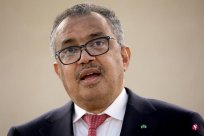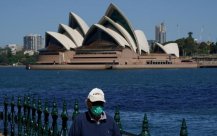(French Xindian in Colombo) The free national health care system in Sri Lanka also envied South Asian neighbors a few months ago, but after an unprecedented economic crisis, the medical system was severely damaged and ended in collapse.
85 % of Sri Lanko's drugs, medical equipment and medical finished product raw materials are imported.Now that the country is bankrupt, the medical system cannot obtain enough medical supplies.
The surgical equipment and drugs at the State Hospital of Sri Lanka are almost exhausted. The shortage of gasoline has caused patients and doctors to go to the hospital. The hospital now only operates at the least manpower.
70 -year -old Mary suffers from diabetes, hypertension, and arthritis. She went to the hospital for the last five kilometers of the hospital and had no cars to take a car, so she had to walk to the national hospital on foot.Four days later, although she could be discharged, she was so painful that she had a subsidy painkillery.She said: "The doctor asked me to go to the pharmacy outside the pharmacy, but I had no money. My knees were still swollen, and there was no home in Colombo. I really don’t know how long I will go."
The owner of the pharmacy bureau Mattia Lagan said that ordinary painkillers, antibiotics and pediatric drugs were seriously out of stock, and other drugs have been four times more expensive in the past three months.Every time he receives 10 medicines, his colleagues must reject three, because many basic drugs have no inventory at all.Doctors in public hospitals revealed that they were forced to reduce routine surgery, prioritized the emergency situation of life, and used a poor alternative drug.
Singh Hamti, a coordinator of the United Nations in Sri Lanka, issued a statement saying: "Sri Lanka's strong medical system was in danger, and the most vulnerable group was the first."
Sri Lanka President Victormaxinha said earlier that the economic crisis may last until the end of 2023, and the more serious public health crisis is imminent.



